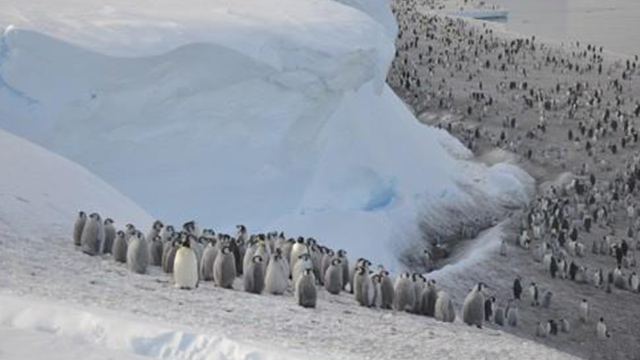
Unprecedented Antarctic Warming Event: Temperature Spikes 38.5°C Above Average
In an unprecedented event, temperatures in Antarctica, the coldest place on Earth, soared 38.5 degrees Celsius above the seasonal average in March, providing stark evidence that Antarctica is now directly affected by global warming.
According to The Guardian, scientists working at the Concordia research station in Antarctica were shocked to discover that the temperature on March 18, 2022, was a staggering 38.5 degrees Celsius above the seasonal average.

Considering that the average March temperature at Concordia Station is -54.0°C, the temperature at the Concordia station is estimated to have been -15.5°C.
Professor Michael Meredith, who leads the British Antarctic Survey, said: "While most polar regions can withstand such extreme temperature increases, if the UK temperature rises by 40 degrees, it would mean spring temperatures would be above 50 degrees, which would be a fatal temperature for humans."
Is It the Curse of Global Warming? The Cause of Rising Antarctic Temperatures
Scientists believe that this dramatic increase in temperature is caused by warm and humid air from low-latitude regions penetrating deep into the Antarctic atmosphere, unlike in the past.
However, they have not yet been able to provide a clear explanation for why this phenomenon is occurring.
A research team from the University of Tasmania in Australia has revealed in a paper published in the Journal of Climate that there has been a "sudden and significant shift in Antarctic climate that could have major implications for both the Antarctic ecosystem and the Earth's climate system."
Professor Sigrid Close, who led the study, stated that "the Arctic is warming at four times the rate of the rest of the planet, and Antarctica is also warming twice as fast."
According to the scientific community, the reason why the Arctic and Antarctic are more affected than other regions is because the warming ocean melts sea ice. As the sea ice melts, the ocean water that was previously covered by ice is exposed, and since it does not reflect sunlight back into space, the ocean becomes even warmer.

The Rising Antarctic Temperature and Its Impact on the Ecosystem
The rapid rise in temperatures in Antarctica is also causing rapid changes in the Antarctic ecosystem.
Professor Kate Hendry of the British Antarctic Survey explained that the disappearance of algae (plants that live in the water) in Antarctica is also leading to a decrease in the number of krill, which are a food source for penguins, seals, and whales.
Researchers warn that if the current warming trend continues, 90% of the emperor penguin's habitat could disappear by the end of this century. Unlike other penguin species, emperor penguins do not build nests. They lay and incubate their eggs directly on the ice. Therefore, the decline in sea ice is expected to have a severe impact on their survival.


